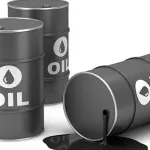Nigeria, a vital member of the Organization of Petroleum Exporting Countries (OPEC), recorded a surge in crude oil production in September 2023.
According to OPEC’s latest monthly oil market report, Nigeria’s oil production reached 1.5 million barrels per day when condensates were factored in, solidifying its status as a key contributor to the global oil market.
Join our WhatsApp ChannelWhile Nigeria took the spotlight, other major oil-producing nations like Libya, Angola, and Algeria followed closely with their production figures for the same month. Libya produced 1.19 million barrels per day, Angola contributed 1.11 million barrels per day, and Algeria registered 957,000 barrels per day.
The OPEC report revealed that, based on secondary sources, the collective crude oil production of OPEC-13 increased by 273 thousand barrels per day in September 2023, reaching an average of 27.75 million barrels per day. Key contributors to this growth included Nigeria, Saudi Arabia, and Kuwait, although Venezuela and Equatorial Guinea witnessed a decrease in production.
READ ALSO: Crude Oil Production Rises, Nigeria Risk Losing $23 billion
What’s more, the report emphasized that OPEC’s share of global crude oil production experienced a slight uptick in September, rising to 27.6% compared to the previous month. These insights offer a comprehensive understanding of the global oil market dynamics during this period.
Beyond the oil production boom, the OPEC report also shed light on Nigeria’s economic landscape during the second quarter of 2023. The country witnessed a substantial improvement in its trade balance, largely attributed to a boost in non-oil exports and a reduction in imports.
The depreciation of the Nigerian currency, the naira, played a pivotal role in this economic transformation. While it made imported goods more expensive and suppressed imports, it simultaneously made Nigerian products more attractive to foreign buyers, thus encouraging non-oil exports.
In June 2023, Nigeria achieved trade surplus of NGN 1,741.1 billion, a stark contrast to the deficit recorded in the same month the previous year. This shift signifies a strengthening trade position for the nation.
However, the positive economic shift came with its set of challenges, most notably, soaring inflation rates. The annual inflation rate reached a 25.8% year-on-year in August, the highest seen since September 2005.
Several factors contributed to this surge, including structural reforms involving the removal of fuel subsidies, the devaluation of the official exchange rate, and difficulties faced in food-producing regions.
These changes, while impacting the inflation rate, were crucial components of Nigeria’s broader economic transformation efforts, marking a pivotal chapter in the country’s financial history.
Emmanuel Ochayi is a journalist. He is a graduate of the University of Lagos, School of first choice and the nations pride. Emmanuel is keen on exploring writing angles in different areas, including Business, climate change, politics, Education, and others.



















Follow Us